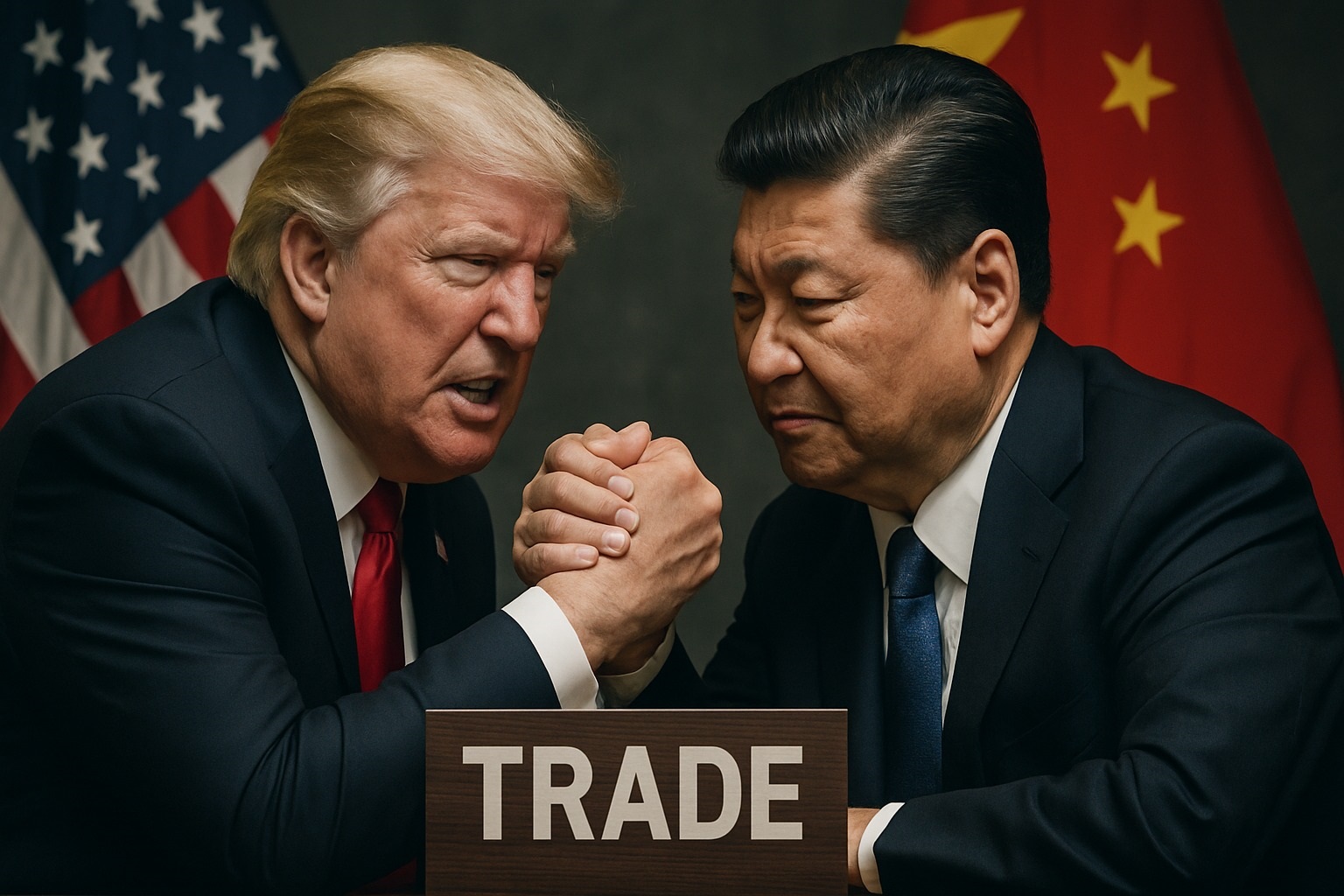A quirky Chinese-made toilet brush, designed as a parody of US President Donald Trump, has witnessed a dramatic rise in sales amid the ongoing trade tensions between the United States and China.
The yellow-bristled brush, which has become an unlikely symbol of the tariff war, has found new popularity as Chinese consumers use it to mock the American president in response to his administration's imposition of punitive tariffs on Chinese goods.
While the Trump toilet brush itself is not a new product, having first emerged during President Trump's first term in office, its resurgence has gained attention as part of a broader trend of retaliatory sentiment.
The brush, which often features Trump's signature hairstyle as part of the design, was initially produced by Chinese factories as a way to capitalize on the U.S. president's global fame. However, today, it is being embraced by many in China as a symbol of defiance against the trade war launched by Trump’s administration.
The surge in demand for the Trump toilet brush comes from Yiwu, a city in eastern China known for its vast network of factories that manufacture inexpensive plastic products. As Chinese factories have faced mounting tariffs imposed by the U.S., the Yiwu City-based manufacturing community has been rallying around a form of economic retaliation dubbed the “Yiwu counterattack.”
Sales reports from local vendors reveal a significant spike in orders for the Trump-themed toilet brush, with prices ranging from 13.9 yuan ($1.9) to 18.9 yuan ($2.6). The product has gone viral on social media platforms in China this week, further fueling the controversy surrounding U.S.-China relations.
Yiwu’s role as a key player in China’s manufacturing sector has made the city a focal point of economic retaliation against the U.S. tariffs. The rise in sales of the Trump toilet brush is seen as a form of “counterattack,” symbolizing Chinese resistance to what many perceive as an unfair trade war.
The escalating tariffs, which have heavily impacted both Chinese and American industries, have not only hurt businesses but also inflamed anti-American sentiment within China. Chinese media has been reporting widespread public discontent, and some businesses are opting to retaliate directly against U.S. companies and citizens.
In an act of protest against the tariff war, a restaurant in Wuhan, Hubei Province, attracted attention earlier this week by placing a sign at its entrance that read: "American customers will be charged an additional 104% service charge. If you have any complaints, please contact the U.S. Embassy." This bold move underscores the growing frustration felt by many in China who view the U.S. tariffs as an economic affront.
The dramatic rise in Trump toilet brush sales reflects not only a shift in consumer behavior but also a broader cultural response to the international trade dispute. While the toilet brush remains a humorous product, its sale has evolved into a symbol of China’s defiance, allowing Chinese citizens to voice their dissatisfaction with U.S. policies in an unexpectedly humorous way.


























